How Cargill’s food safety teams help build a more secure food system
Key Takeways
- Food safety is one of the most important — and often unseen — parts of the global food system.
- Meeting the world’s growing demands for food will require a steep increase in production, but can’t come at the expense of food safety.
- Thousands of Cargill food safety, quality and regulatory professionals are using the latest data and technology to keep our global supply chains moving and ensure we consistently deliver safe, quality products.
When it comes to food, we all share one expectation: the food we purchase will be safe to eat.
Yet, foodborne illness remains a daily challenge around the world. According to the World Health Organization, an estimated 600 million — almost 1 in 13 people in the world — fall ill after eating contaminated food every year, resulting in 420,000 deaths.
Meeting the world’s growing demand for food will require a significant increase in production — and it can't come at the expense of food safety. To meet that challenge, Cargill’s food safety, quality and regulatory (FSQR) professionals focus on prevention, consistency and collaboration. Using the latest data and technology to anticipate and proactively address risks, they work to protect people, support our customers and strengthen our complex global systems that keep food moving.
This includes innovations like the Cargill™ Hazard Alert System, helping teams spot and respond to emerging risks faster. This digital platform scans global data sources to detect potential issues early so our people can act before problems escalate.
“Our customers and communities count on us to consistently deliver safe, quality products,” says Sean Leighton, vice president of FSQR at Cargill. “Food safety is everyone’s responsibility, and it’s a responsibility we take seriously at every site, in every business and in every country where we operate."
Meet some of our experts.
Jenna Klinge: Building confidence through teamwork
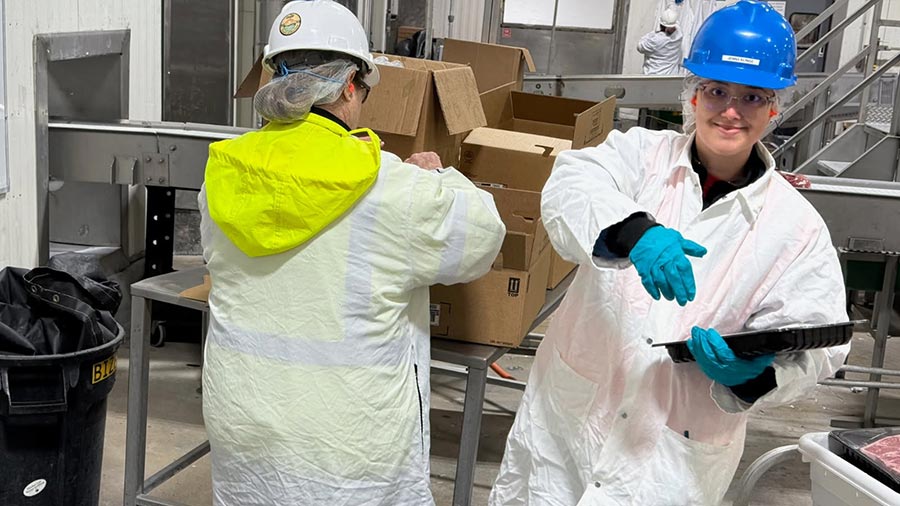
Role: |
FSQR manager for Cargill’s food business |
Location |
Marshall, Missouri, U.S. |
Time at Cargill: |
Nearly two years |
What makes food safety personally meaningful to you?
Growing up, food has always been a love language of my family. I want them — and everyone else — to have safe, reliable sources of food. Feeding the world in a safe, quality manner is my way of helping now and for the future.
What makes your role in quality control at Cargill especially meaningful to you?
I get to interact with a variety of teams daily — from within my plant to other Cargill facilities, to research and science teams, and our customers. Having the range to learn from and support broad groups is rewarding and has helped me to continue my development.
3 ways you can practice food safety at home
Cargill’s food safety teams use science, technology and global partnerships to keep food safe every day. But protecting your food system also starts at home. Sean Leighton, vice president of FSQR, shares three simple habits anyone can practice:
- Wash your hands well. Scrub with soap and water for at least 20 seconds before preparing or eating food.
- Keep hot foods hot and cold foods cold. Store cold foods below 4°C and keep cooked items at or above 60°C until served.
- Cook meats to safe temperatures. Use a food thermometer to ensure beef, poultry and fish are cooked thoroughly.
“Food safety doesn’t stop at the plant,” Sean says. “These small steps can help prevent illness and protect the people you care about most.”
Allen Qing: Setting high standards in feed safety
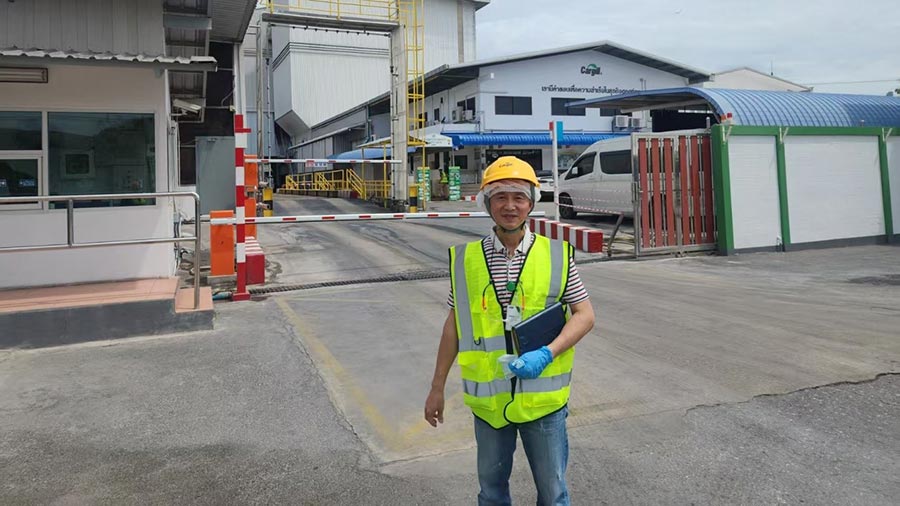
Role: |
Regional supplier quality management lead for Cargill’s animal nutrition and health business in APAC |
Location |
Chengdu, Sichuan Province, China |
Time at Cargill: |
20 years |
Why does ensuring food safety feel like more than just a job to you?
As a consumer, father and pet owner, food safety is critically important to me. And as an employee in the feed industry, I know safe animal feed is the foundation of safe food. I am extremely proud to be a member of the Cargill FSQR family and contribute to our feed and food safety.
What is one of your proudest moments with Cargill?
I was incredibly proud the first time I showed my family what we were eating was produced by Cargill’s food business because we apply the highest food safety criteria in the world.
Anett Winkler: Raising awareness for unseen work
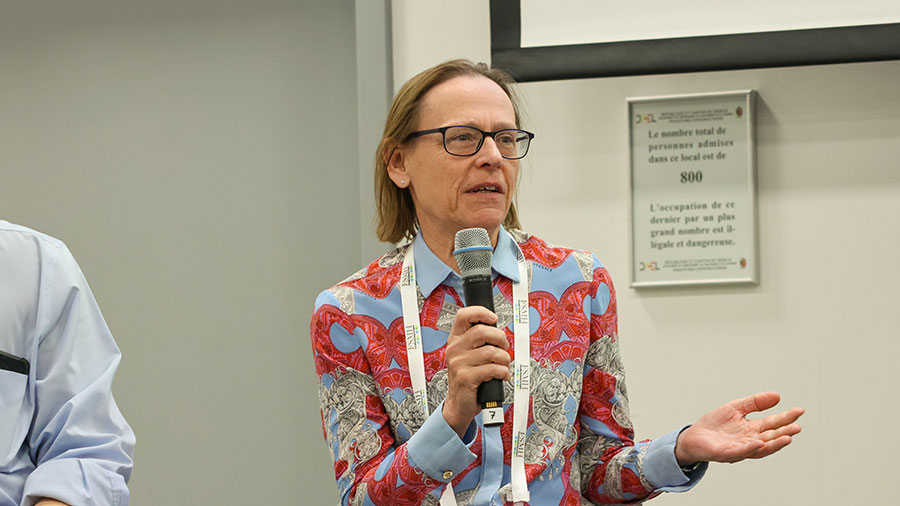
Role: |
Food safety advisor, microbiology |
Location |
Düsseldorf, Germany |
Time at Cargill: |
Nearly eight years |
Why is food safety important to you?
It serves the purpose of keeping people healthy, letting them enjoy food without negative consequences of their health.
Working in food safety is a lot like housework — only noticed when it hasn’t been done. Everyone sees the news about foodborne outbreaks, but hardly anyone sees the work behind making it safe for consumption.
What is one of your proudest moments with Cargill?
That is hard to say, because there are so many that come with my job! I enjoy discussions with customers to understand their concerns and help them understand our approaches; developing and performing process validations to ensure the production of safe food; and supporting businesses in solving microbiological issues to ensure only safe and high-quality food and feed is delivered to customers, just to name a few.
Dan Peterson: A digital-first approach to prevention
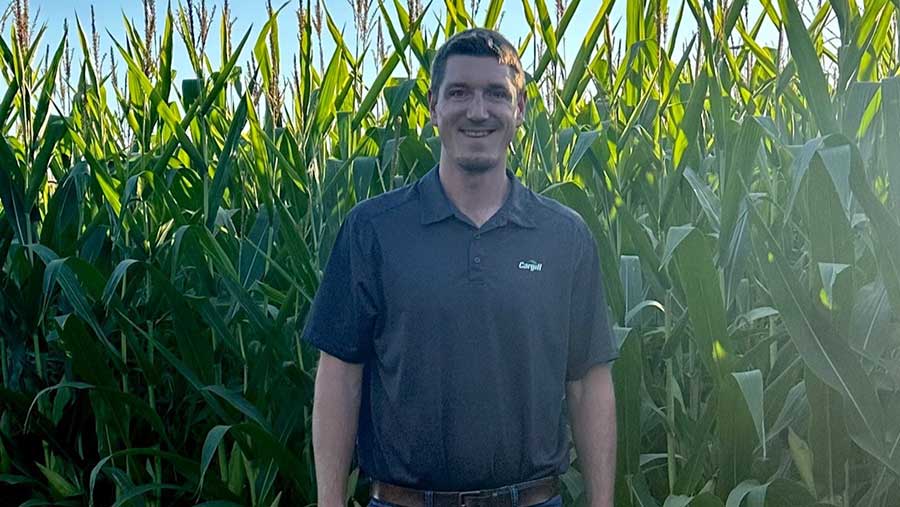
Role: |
Global digital solution management |
Location |
Wayzata, Minnesota, U.S. |
Time at Cargill: |
15 years |
When you think about food safety, who do you envision you're protecting?
As a husband and father of two young boys, I know firsthand that it isn’t any fun when someone’s not feeling well. The last thing we want to do is cause harm from the food we supply, and I believe that zero food safety incidents is possible. A strong focus on our food safety programs ensures the wellbeing of the consumers and the families we feed around the world.
What do you love about your job at Cargill?
Being able to interact and work with talented professionals in each region of the world every day. I also enjoy being able to share insights and collaborate with our global customers, which represent the most impactful and recognizable brands in the world.
Desi Christiana Simamora: Protecting lives through product quality
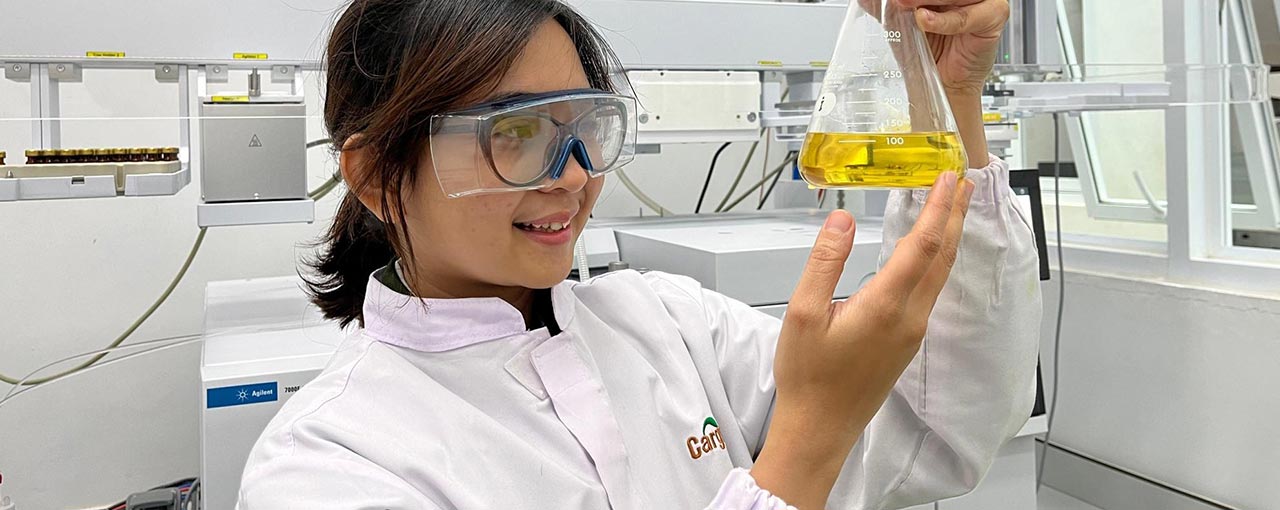
Role: |
Senior quality control analyst |
Location |
Bandar Lampung, Indonesia |
Time at Cargill: |
Over 2 years |
What makes your role in quality control at Cargill especially meaningful to you?
To me, food safety is more than a professional responsibility, it’s a personal commitment. I always remind myself that behind every product we handle, there’s a person who will consume it. If the food isn’t safe, it could lead to serious illness, or even death. That’s why I take this role very seriously. Ensuring food safety means protecting lives — and that’s something I deeply care about.
What do you love about your job at Cargill?
The opportunity to be deeply involved in quality control. It’s not just about checking standards; it’s about ensuring that every step, from raw materials to the final product, meets the highest level of food safety. I take pride in knowing that the work I do helps protect consumers and gives them confidence in the products they use. It’s fulfilling to know that my role contributes to making people feel safe about what they eat.
